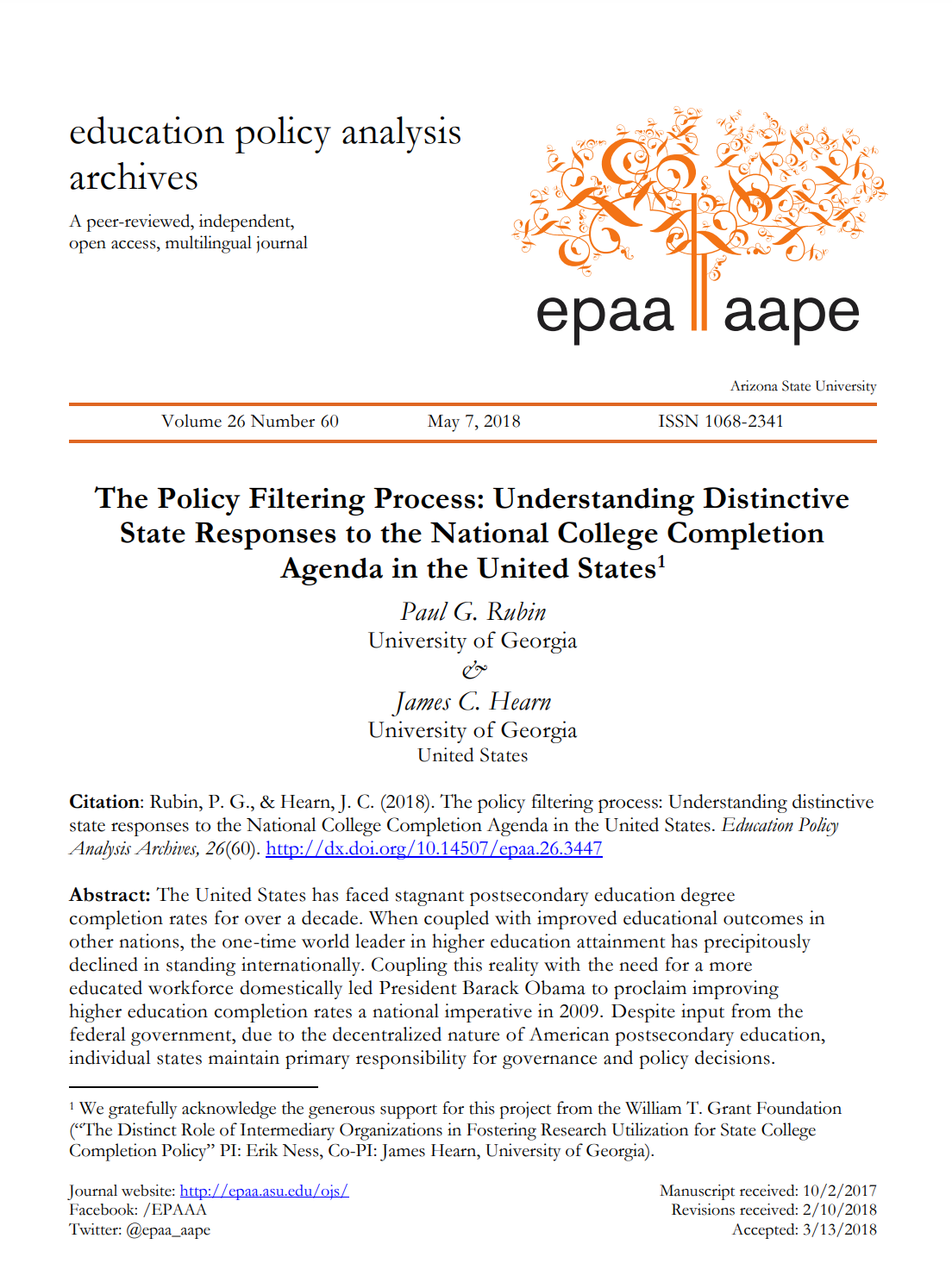The Policy Filtering Process: Understanding Distinctive State Responses to the National College Completion Agenda in the United States
Author(s): Paul G. Rubin, James C. Hearn
Publisher: Education Policy Analysis Archives
Year: 2018
Access Publication*Subscription Required
Description
The United States has faced stagnant postsecondary education degree completion rates for over a decade. When coupled with improved educational outcomes in other nations, the one-time world leader in higher education attainment has precipitously declined in standing internationally. Coupling this reality with the need for a more educated workforce domestically led President Barack Obama to proclaim improving higher education completion rates a national imperative in 2009. Despite input from the federal government, due to the decentralized nature of American postsecondary education, individual states maintain primary responsibility for governance and policy decisions. Consequently, there has been a range of state responses to improving college completion. Through a comparative case analysis, this study considers a putatively homogenous region to investigate state-level factors that “filtered” the national college completion agenda to distinct responses in Georgia, South Carolina, and Texas.

